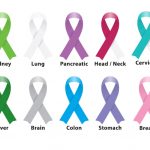6. Pneumonia

Pneumonia is an umbrella term for a lung tissue infection that can be caused by a virus, bacteria, or fungus and is another leading cause of NCCP. There are two classifications of pneumonia: community-acquired (CAP) or hospital-acquired (HAP), which is also known as nosocomial pneumonia and is most common in intensive care units.
The most common bacterial cause of CAP is streptococcus pneumonia. A chest X-ray often diagnoses the different types of pneumonia. The most common treatment of CAP is a macrolide antibiotic such as azithromycin or doxycycline. For those with HAP, it is often suggested that antibiograms that allow for the understanding of the susceptibilities of specific microorganisms to different antibiotics.
More from Things Health
-
Warning Signs That You Might Have Heart Issues
Heart disease has both genetic and environmental components, as it tends to run in families but can also be impacted by your lifestyle choices such…
-
10 Common Symptoms of Early Stage Cancer
Due to technological advances over the past 50 years, huge progress has been made when it comes to the fight against cancer. However, there is…
-
10 Causes of Leg Cramps – and How to Stop Them
Although they are usually harmless and actually quite common, leg cramps can be both uncomfortable and painful. In this article, we provide an overview of…
-
10 Common Symptoms of Having an Anxiety Disorder
What is normal? Sometimes it is difficult to determine when getting nervous or anxious is a normal feeling, and when you might have an anxiety…
-
Visual Signs of Poor Health That Should Not Be Ignored
We often think that being diagnosed with an illness such as diabetes, heart disease, stroke or cancer as something that happens out of the blue.…






